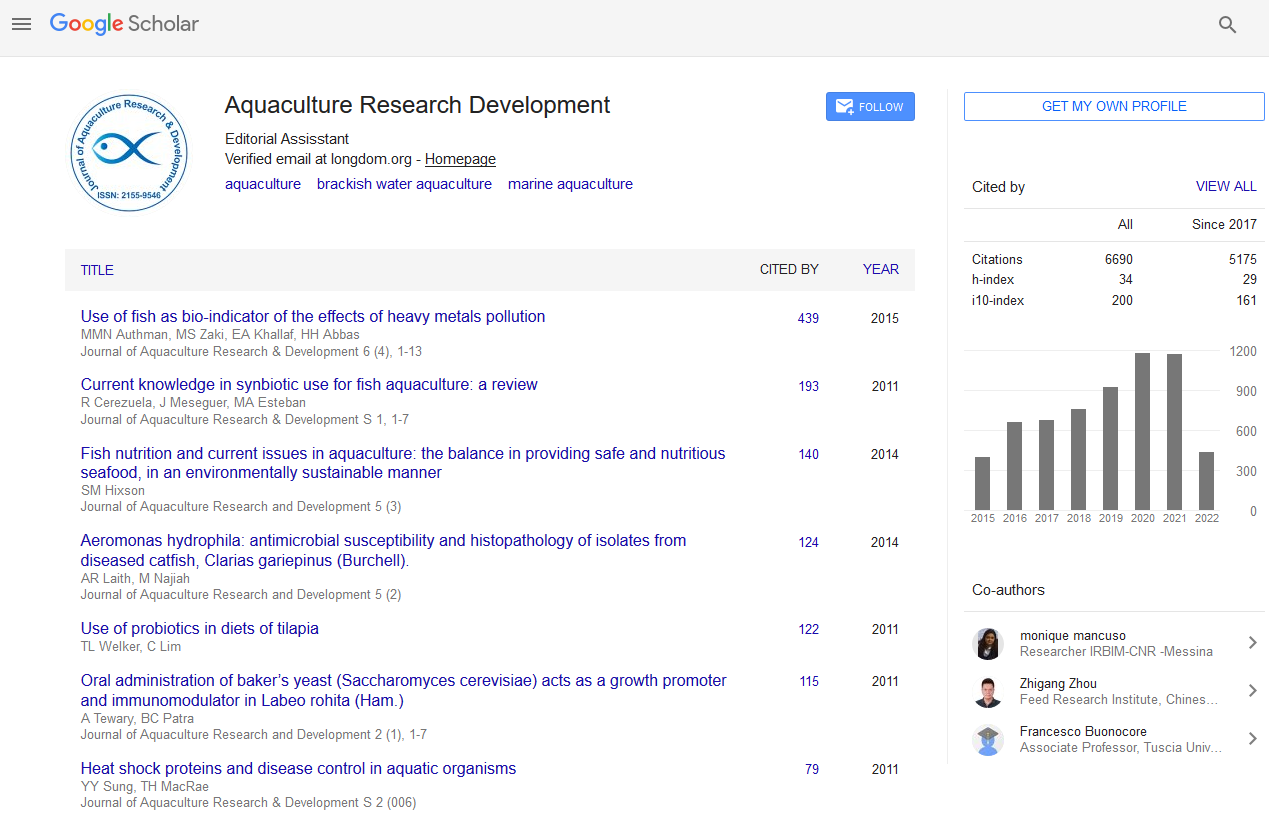PMC/PubMed Indexed Articles
Indexed In
- Online Access to Research in the Environment (OARE)
- Open J Gate
- Genamics JournalSeek
- JournalTOCs
- Scimago
- Ulrich's Periodicals Directory
- Access to Global Online Research in Agriculture (AGORA)
- Electronic Journals Library
- Centre for Agriculture and Biosciences International (CABI)
- RefSeek
- Directory of Research Journal Indexing (DRJI)
- Hamdard University
- EBSCO A-Z
- OCLC- WorldCat
- Scholarsteer
- SWB online catalog
- Virtual Library of Biology (vifabio)
- Publons
- MIAR
- University Grants Commission
- Euro Pub
- Google Scholar
Useful Links
Share This Page
Journal Flyer

Open Access Journals
- Agri and Aquaculture
- Biochemistry
- Bioinformatics & Systems Biology
- Business & Management
- Chemistry
- Clinical Sciences
- Engineering
- Food & Nutrition
- General Science
- Genetics & Molecular Biology
- Immunology & Microbiology
- Medical Sciences
- Neuroscience & Psychology
- Nursing & Health Care
- Pharmaceutical Sciences
Abstract
White Shrimp Litopenaeus vannamei that have received Petalonia binghamiae Extract Activate Immunity, Increase Immune Response and Resistance against Vibrio alginolyticus
Chen YY, Chen JC, Lin YC, Yeh, Chao KP and Lee CS
This study was to examine immune response of white shrimp Litopenaeus vannamei and its resistance against Vibrio alginolyticus when shrimp received Petalonia binghamiae extract in vitro and in vivo. Shrimp hemocytes incubated with 1 mg/ml extract showed increased Phenoloxidase (PO) activity and respiratory burst (RB, release of superoxide anion). The total hemocyte count (THC), Phenoloxidase (PO) activity, respiratory Burst (RB) of shrimp received the extract at 6 and 10 μg/g were significantly higher than those of shrimp received saline and the control shrimp after 48, 96 and 144 h. Superoxide Dismutase (SOD) activity of shrimp received the extract at 6 and 10 μg/g were significantly higher than those of shrimp received saline and the control shrimp after 48 h. Phagocytic activity and clearance efficiency to Vibrio alginolyticus in the shrimp that received the extract at 6 and 10 μg/g were significantly higher than those of shrimp received saline and the control shrimp after 24, 48, 96 and 144 h. In another experiment, shrimp which had received the extract at 2, 6, and 10 μg/g after one day were challenged with V. alginolyticus at 1.4×106 colony-forming units (cfu)/shrimp, and then placed in seawater. The survival rate of shrimp that received the extract at 6 and 10 μg/g was significantly higher than that of control shrimp after 12-144 h. It was concluded that P. binghamiae extract could cause activation of shrimp immunity, and concluded that shrimp received the extract at 6~10 μg/g increased immune response of shrimp as well as resistance to V. alginolyticus infection.


